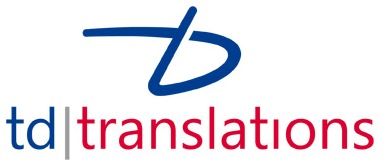
FAQ
What is the difference between translating and interpreting?
Simply put: Translators translate written texts from one language to another, and interpreters translate the spoken word.
Do you need documents such as financial statements, quotations, or contracts translated? Then a translator is the right choice for you.
For an event with an international audience, such as a professional conference, an interpreter will help you.
What is a certified or sworn translation?
Certified translations are required for official and administrative purposes all over the world. Typical examples are commercial register extracts, driving licenses, diplomas or court judgments.
A sworn or certified translator (the terms vary depending on where you live) prepares these translations and then confirms their accuracy and completeness with a stamp and signature.
I can also provide you with certified or sworn translations. Just send me your inquiry - here are my contact details.
How is the price of a translation calculated?
The cost of a translation depends on a number of factors: the volume and complexity of the text, the deadline, the format and the intended use. Whether certification is required will also affect the price.
Based on these criteria and my 20 years of experience, I will provide you with a fair and fixed-price quote – with no hidden costs or surprises. Just send me your inquiry - here are my contact details.
What kinds of texts do I translate?
I translate into German and English and specialize in business, economic and financial documents. Examples include: annual financial statements, fund reports, M&A documentation, equity research and derivative contracts. You can find more detailed information in the services section.
My portfolio also includes certified or sworn translations, e.g. of commercial register extracts and certificates or diplomas.
What is the dual control principle?
Also referred to as four-eyes principle, the dual control process ensures quality, because 4 eyes see more than 2.
If requested, I have my translations proofread or revised by a second translator; recommended especially for texts that are to be published. This service is optional and is charged separately.
What information is helpful when making an inquiry?
Ideally, I would need the text to be translated at the time of the request, so that I can provide you with an accurate quote.
Please also indicate the desired delivery date and, for German into English translations, the language variant (British or American).
Reference material (e.g. existing translations) will help to maintain consistency of style and terminology for you.
Just send me your inquiry - here are my contact details.
Why is subject matter expertise important for translators?
Translators need more than just excellent language skills – they must have an in-depth understanding of the subject area.
Just as you have specialists in certain areas in your company, I have specialized in financial and economic texts because I am a trained banker. This enables me to avoid mistakes, ask the right questions when necessary, and ensure the best quality for your sensitive documents.
Artificial intelligence and machine translation – yes or no?
Machine or AI translation (e.g. using DeepL) can be helpful in certain cases, such as for simple e-mails.
However, for complex or sensitive texts like annual reports or loan agreements, human translators are indispensable. The same is true for texts that are to be published or for court documents etc.
Automated pre-translation often does not save time, as the correction of such texts usually requires more effort. Errors such as omissions or distortions of meaning are often difficult to detect because the texts tend to read fluently. Careful review is therefore essential to ensure quality.



